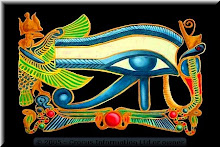The story of Beowulf shows many insights about Anglo-Saxon values. Beowulf has a lot of pride about his prowess as a warrior. The author says Beowulf "was too proud to line up with a large army against the sky-plague. He had scant regard for the dragon as a threat" (Haney 2345-2348). Beowulf believes that he can defeat the dragon on his own. Eventually he does kill the dragon but Beowulf also dies from his wounds. So perhaps pride is not a great value for the warrior to have. The men of that time put a lot of emphases on honor. One of Beowulf's men says "I would rather my body were robed in the same burning blaze as my gold-giver's body than go back home bearing arms" (Haney 2651-2652). The man would rather be killed than retreat. There is honor in dying for a cause. Another value is receiving a reward for doing a good deed. When Beowulf defeats the dragon, he finds a trove of treasure. "A treasure-trove of astonishing richness, wall-hangings that were a wonder to behold, glittering gold spread across the ground, the old dawn-scorching serpent's den..." (Haney 2757-2760). The death of the evil dragon results in a huge amount of treasure for Beowulf and his men. Clearly there is a reward for stopping evil.
There are a few differences in the story of dragon than in the other monsters Beowulf encounters. For one, Beowulf dies giving the reader the sense that Beowulf is vulnerable. "Beowulf spoke ins spite of his wounds...he knew his days in the world had been lived out...death was drawing near" (Haney 2724-2728). Beowulf has always been seen as this fearless warrior that cannot be brought down. However he dies in this one. The author realizes that death is impossible to escape and that everyone must go to the world beyond. Another difference is that this fight is own Beowulf's land. "Then Beowulf was given bad news...his own home, the best of buildings had been burnt to a cinder" (Haney 2324-2326). Beowulf has to defend his own home, giving him a larger purpose.
Beowulf's death is considered an honorable death for a man of this time period. This is shown several times in the story. For example a soldier says "I would rather my body were robed in the same burning blaze...than go back home bearing arms. That is unthinkable unless we have first slain the foe" (Haney 2651-2655). The man exemplifies the idea that the most honorable thing to do is slay your enemy or die trying. This is what Beowulf did. He gave himself to reach a goal, "Now that I have bartered my last breath to own this fortune (Haney 2799-2800). According to the author, warriors should strive to bring justice to the world. "They had killed the enemy...so everyman should act" (Haney 2706-2708). Beowulf dies a warrior's death, which according to the standards of era, was honorable and fitting.
Tuesday, December 9, 2008
Subscribe to:
Post Comments (Atom)

No comments:
Post a Comment